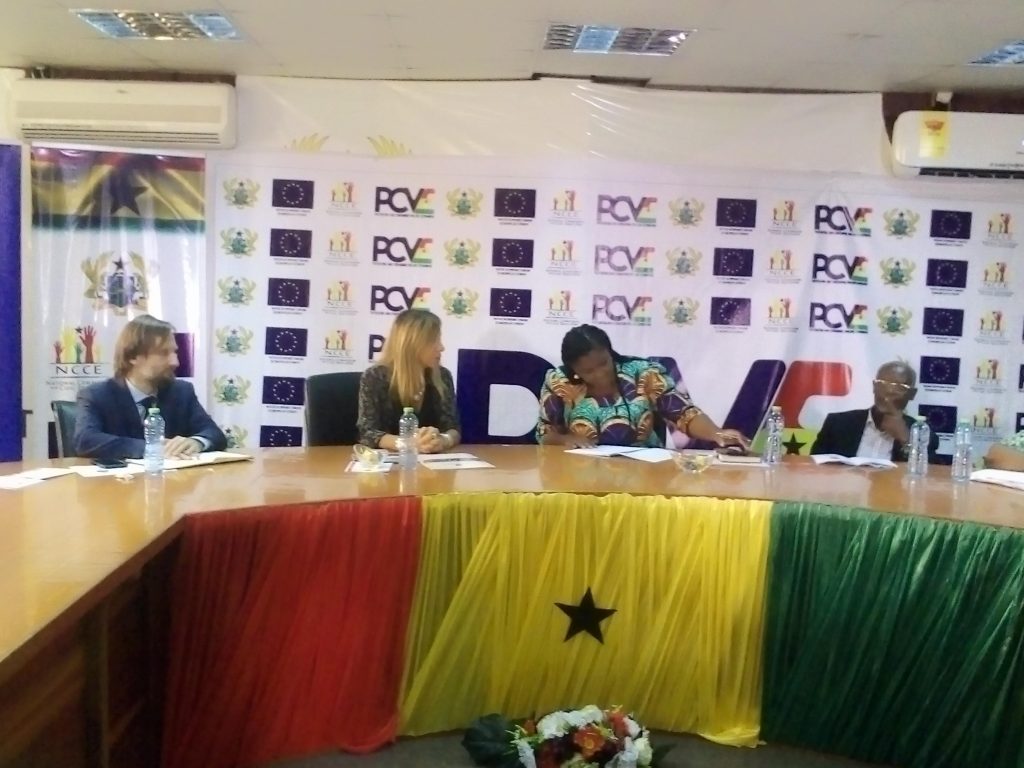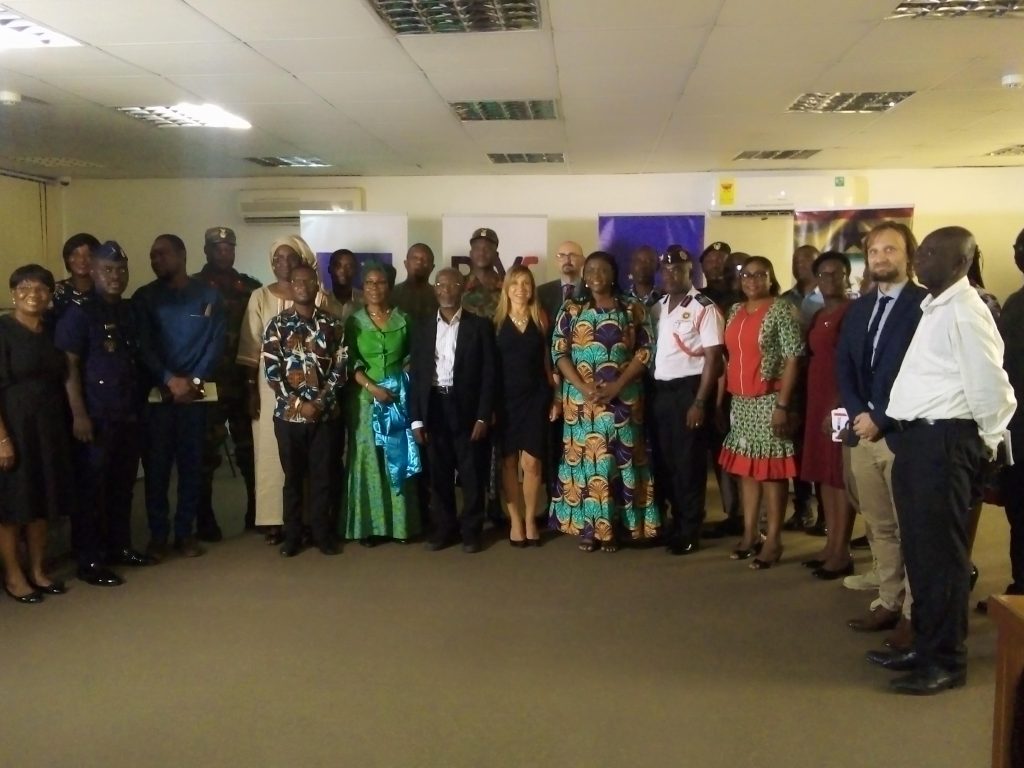Accra, Dec. 9, GNA – Ms Kathleen Addy, Chairperson of the National Commission for Civic Education (NCCE) has asked Government to retool the Commission to enable it to ramp up projects on violent extremism across the country.
This she said was critical if the country was to combat threats of insurgent groups in the country and maintain the peace and security.
The NCCE Chairperson made the call when the Commission together with the European Union signed and launched an 18-month project on preventing violent extremism and terrorism, in Accra on Wednesday.
The project, Preventing and Containing Violent Extremism (PCVE), sought to help prevent and contain violent extremism and terrorism and promote social cohesion, peace and tolerance in the country.
It would be implemented in 63 districts across the five regions of the north including Upper West, Savannah, North East and Northern regions, and other three border regions namely Oti, Bono East and Bono.
Funded by a €1.7 million EU grant, the project would see the NCCE undertake intensive public education, awareness creation, community support and other interventions to help combat threats of violent extremism.
Ms Addy said the PCVE project was a critical move to ensure the safety and security of the country, adding that the project would strengthen state and non-state actors at the national, regional and community levels in the fight against violent extremism and terrorism.

“This will also prevent individuals identified to be at risk of joining violent groups and work with them to adopt more desirable attitudes and behaviours,” she added.
She said the Commission considered the project a national assignment and would execute it to achieve the set out objective.
She said: “Our ultimate objective is that we will not cede one heart, one mind or support from any Ghanaian or person resident in Ghana to terrorists.”
The Chairperson of the NCCE called on Ghanaians to support efforts in preventing elements that derailed national security.
She also urged traditional leaders and faith-based groups, specifically Imams and clergy to support the work of the NCCE to create the enabling environment for businesses to thrive.
Mr Irchad Razaly, the EU Ambassador to Ghana, emphasized the importance of education in prevention and containment of violent extremism in any country.

He said, “a well-educated and empowered society, immune to destructive narratives and capable of resolving its internal differences in amicable and peaceful manner, can move itself away from the dangers of radicalisation and of rise of violence.”
Mr Razaly, while commending the NCCE for a successful implementation of previous projects such as the Novprevsec programme, said the grant would further enhance the Commission’s capabilities to deliver on its constitutional mandate, especially in helping to prevent violent extremism in the country.
He assured of continuous EU support to ensure the maintenance of peace in the country.
Colonel Tim Ba-Taa-Banah, Director, Counter Terrorism and Fusion Center, Ministry of National Security assured Ghanaians that the Ministry would continue to work to negate the vulnerability of the country.
“We will not allow complacency to take over us,” he emphasised.
Mr Samuel Asare Akuamuah, the Project Director, PCVE, entreated Ghanaians to be curious and ask question unknown projects in their communities to help prevent any possible radicalisation.
GNA